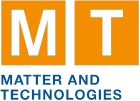Speaker
Mr
Marco Garten
(Helmholtz-Zentrum Dresden - Rossendorf)
Description
With recent improvements in plasma mirror techniques achieving a reproducibly high laser contrast, systematic studies of short-pulse, ultra-high intensity laser-ion acceleration from thin foil targets (~10-300nm) become experimentally available. A deeper understanding of the influence of the pre-pulse phase and ps leading pulse edge of the drive laser could lead to better control and reproducibility of ion cut-off energies which are crucial for using laser-accelerated ions in medical applications. Plasma dynamics accompanying the acceleration are highly non-linear and require precise knowledge about the influence of both ab-initio electromagnetic and atomic evolution of the plasma. Consequently, modeling these processes requires a fully kinetic high-resolution treatment and extensive 2D surveys, while comparisons to experiments have shown that a quantitative prediction of proton cut-off energies and evolution of plasma instabilities demand a full 3D approach. We present first results from a 3D PIC simulation campaign, modeling ultra-intense (a0 = 20-60) laser interaction with up to micrometer thick foils covering also the last picosecond time span prior to the arrival of the main pulse. Simulations have been performed at the Piz Daint supercomputer at CSCS, Switzerland, using the fully-relativistic 3D3V open-source particle-in-cell code PIConGPU developed at HZDR.
Author
Mr
Marco Garten
(Helmholtz-Zentrum Dresden - Rossendorf)
Co-authors
Mr
Axel Huebl
(Helmholtz-Zentrum Dresden - Rossendorf)
Mr
Ilja Goethel
(Helmholtz-Zentrum Dresden - Rossendorf)
Mr
Karl Zeil
(Helmholtz-Zentrum Dresden - Rossendorf)
Mrs
Lieselotte Obst-Huebl
(Helmholtz-Zentrum Dresden - Rossendorf)
Dr
Michael Bussmann
(Helmholtz-Zentrum Dresden - Rossendorf)
Mr
René Widera
(Helmholtz-Zentrum Dresden - Rossendorf)
Prof.
Thomas Cowan
(Helmholtz-Zentrum Dresden - Rossendorf)
Dr
Thomas Kluge
(Helmholtz-Zentrum Dresden - Rossendorf)
Mr
Tim Ziegler
(Helmholtz-Zentrum Dresden - Rossendorf)
Prof.
Ulrich Schramm
(Helmholtz-Zentrum Dresden - Rossendorf)

